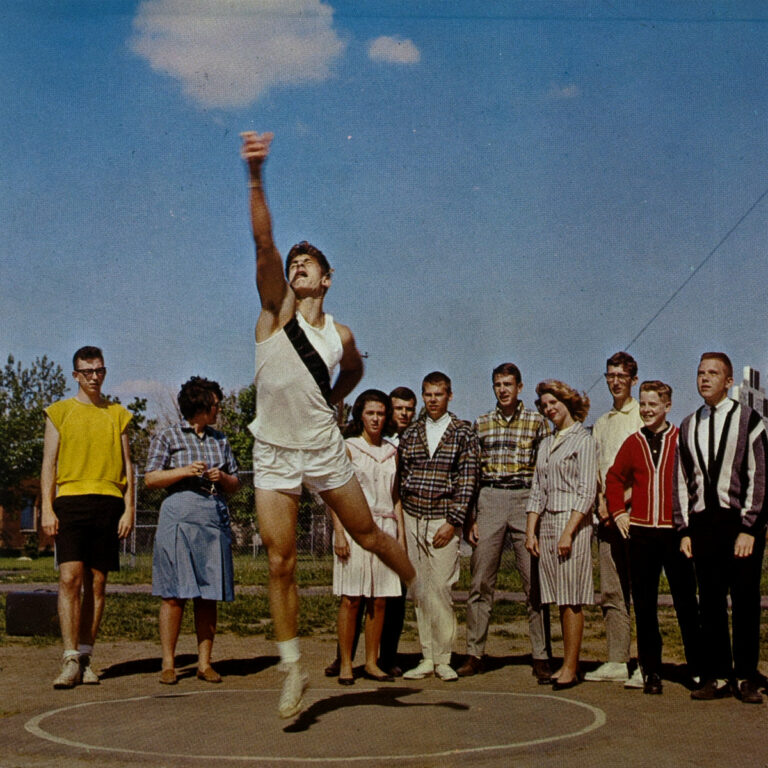Grace Han is a prominent figure in the British luxury sector, synonymous with elegance and skilful craftsmanship. Born in Taiwan, Grace’s journey is a testament to the seamless fusion of Eastern and Western design influences, resulting in a collection of bags and leather accessories exemplifying timeless style. In an interview with us, Grace joined us to discuss her brand and its relaunched flagship store in London.
Firstly, how are you, and how is the luxury industry treating you?
The luxury industry, for me, is a realm full of opportunities. I firmly believe that the fashion industry holds infinite potential for development. The reopening of our flagship store is not only a return to past classics but also a quest for growth in a fresh environment. My passion and confidence in this field drive me to relentlessly pursue innovative creations and embrace challenges. With each transformation, I see limitless possibilities, aiming to carve out a unique space for the brand in this fiercely competitive industry, fostering continuous growth and evolution.
Can you tell us more about the inspiration behind the design and concept of your newly reopened flagship store in Beauchamp Place, Knightsbridge? How does it reflect your style and vision for the brand?
From my childhood, my mother always told me that her dream was to exhibit her art works in London. This deeply influenced me and became my inspiration for my creations. Therefore, when I had the opportunity to establish the flagship store for Grace Han, I did not hesitate at all and chose to open it in London. I personally participated in the interior design of the store and displayed my mother’s paintings inside. This accomplishment not only realized my dream but also fulfilled my mother’s dream. The design philosophy of the store aims to make every visitor feel the tranquility and sense of belonging that the brand brings. Therefore, I chose understated gold tones and soft carpets to create a unique atmosphere. Even the shapes and designs of the lighting fixtures in the store were personally crafted by me.
Your brand blends Eastern and Western design influences. How do you balance these two distinct aesthetics in your collection of bags and leather accessories?
Upon graduating from university, I solidified my determination to enter the field of art. I then pursued a fashion illustration course in London, where I learned pattern cutting, figure sketching, and oil painting. It wasn’t until I delved into working with leather that I truly found my creative medium. The moment I touched leather, through the process of kneading and shaping the material, a continuous stream of inspiration flooded my mind. I therefore immersed myself in the realm of leather crafting and interned at a leather craftsmanship. After two years of communication, experimentation, and sampling, I studied Italian craftsmanship and collaborated with master craftsmen in Taiwan to develop Grace Han’s unique leathercraft. This fusion of century-old techniques with innovative elements resulted in the creation of distinctive handbags.
The reopening of your flagship store marks a significant milestone for you and the brand. Can you share with us any emotions and thoughts you experienced during reopening?
In 2019, after seven years of meticulous planning, our carefully crafted flagship store temporarily closed in response to the challenges posed by the pandemic. Now, returning to London, everything feels familiar, and we express gratitude for the journey. The years away have witnessed changes in the market, sparking a sense of anticipation for the future. However, our focus has always been on pursuing the ideal venture, infusing the entire process with dedicated and steadfast quality. The closure and subsequent reopening may raise concerns externally, fearing the challenges of a vast market. Yet, we possess the confidence and profound passion for our business, emphasizing a steadfast commitment to quality.
Throughout this challenging journey, we have not allowed ourselves to be overshadowed by fear or chaos. Regardless of the circumstances, we face them with a calm demeanor because we understand that the key lies in staying focused on realizing our dreams. Every incident that occurs serves as a test, and our goal is to meet challenges head-on and persevere.
During this period, I have received abundant support from those around me, especially the invaluable assistance from my father, which has filled me with a sense of warmth. Pursuing a career aligned with our passions is a rare happiness. No matter the nature of the challenges we encounter, we view them as opportunities for growth and refinement. The road may be winding, but we traverse it with a grateful heart, overcoming obstacles every step of the way.
Your brand is known for outstanding craftsmanship. Can you elaborate on how you ensure each piece in your collection is a work of art and how long it takes to develop some of your designs?
For us, the quality of our handbags is a paramount focus. We do not only demand high-quality leather but also subject hardware accessories to rigorous testing. Through evaluating the impact resistance and load-bearing capacity of our hardware components, and utilizing unique molds in their production, we ensure that our handbags stand out in terms of quality. This is not just to enhance the user experience but also to ensure that our accessories have a distinctive presence in the market, avoiding any resemblance to other brands.
In the selection of leather, we opt for medium-grain cowhide, along with the highest quality full-grain leather and sheepskin. Full-grain leather, being the top layer, boasts exceptional texture and durability, while preserving the natural grain and characteristics of the leather, ensuring an extended lifespan. We are well aware that the quality of leather directly influences the appearance, texture and durability of the handbags, and we do not compromise in this regard.
Initially, we merely aimed to excel in one aspect, but unexpectedly, we have immersed ourselves in this journey for a decade. Through meticulous leather selection and specialized hardware crafting, we guarantee the uniqueness of our brand. Each piece is crafted with an artistic perspective, undergoing countless efforts at every stage to achieve the standard of art. This is our commitment to quality and artistry, a profound embodiment of the uniqueness of our brand.
Your parents’ love story began in London, which holds special romantic and creative significance for you. Can you share more about the role that London plays in shaping your artistic vision and design philosophy?
London is the starting point of my parents’ love story, and it serves as the wellspring that inspires my artistic vision and design philosophy. Hearing the touching tale of my parents meeting and falling in love in this city since childhood has deeply immersed me in the diverse culture of London and the profound essence of art. To me, London is like a familiar, natural, and comfortable stage. The opening of the Grace Han flagship store is an expression of my emotions, particularly the Love Letter series, which draws inspiration from my parents’ story and highlights the value of emotional inheritance within the family. Through Grace Han, I aspire to integrate joyful memories into the lives of each customer, perpetuating the spirit of emotional transmission.
Lastly, if you had one person wearing your brand, dead or alive, who would it be and why?
As I gaze upon Grace Han’s work, I am invariably reminded of the tender smile my mother wore while adorned in Grace Han. She serves as the source for my creative inspiration, and each design seems to encapsulate the warmth and love she bestowed upon me. When my mother smiles while wearing Grace Han, it’s as if she senses the profound affection I hold for her; every detail is a tribute to her. This is not merely a manifestation of fashion art but a genuine exchange of familiah affections. Although my mother never had the opportunity to personally experience Grace Han’s handbags, her love and inspiration seamlessly integrate into our lives, becoming the brand’s most profound embrace. In the future, I aspire to continue the legacy of Grace Han to the next generation, infusing each design with the warmth and genuine affections of a family.





 Guided by Voices have released Nowhere to Go But Up, their third album of 2023 and 39th overall, via GBV Inc. Following January’s La La Land and July’s Welshpool Frillies, the 11-song LP was previewed by the singles ‘The Race Is On, The King Is Dead’ and ‘For the Home’. Earlier this year, Guided by Voices celebrated their 40th anniversary with a two-day festival in their hometown of Dayton, OH featuring Dinosaur Jr, Built to Spill, Wednesday, and more.
Guided by Voices have released Nowhere to Go But Up, their third album of 2023 and 39th overall, via GBV Inc. Following January’s La La Land and July’s Welshpool Frillies, the 11-song LP was previewed by the singles ‘The Race Is On, The King Is Dead’ and ‘For the Home’. Earlier this year, Guided by Voices celebrated their 40th anniversary with a two-day festival in their hometown of Dayton, OH featuring Dinosaur Jr, Built to Spill, Wednesday, and more. Busta Rhymes has put out his 11th studio album, Blockbusta. Pharrell Williams, Timbaland, and Swizz Beatz serve as executive producers on the follow-up to 2020’s Extinction Level Event 2: The Wrath of God, which featured guest appearances from Mariah Carey, Q-Tip, and Kendrick Lamar. “This project right here is executive produced by the fucking committee,” Swizzy said in a video announcing the album. “Pharrell the Pharaoh, Timbo the King, Swizz Beatz the student.” “I’m so grateful that you chose me to be a part of your legacy,” Timbaland told the MC, and Pharrell added: “You really feel illuminated. This illumination is good because I think people gon’ be able to get and feel that.”
Busta Rhymes has put out his 11th studio album, Blockbusta. Pharrell Williams, Timbaland, and Swizz Beatz serve as executive producers on the follow-up to 2020’s Extinction Level Event 2: The Wrath of God, which featured guest appearances from Mariah Carey, Q-Tip, and Kendrick Lamar. “This project right here is executive produced by the fucking committee,” Swizzy said in a video announcing the album. “Pharrell the Pharaoh, Timbo the King, Swizz Beatz the student.” “I’m so grateful that you chose me to be a part of your legacy,” Timbaland told the MC, and Pharrell added: “You really feel illuminated. This illumination is good because I think people gon’ be able to get and feel that.” Spector have followed up 2022’s Now or Whenever with a new LP, Here Come the Early Nights. “It feels like a slightly more reflective record than the last one, and maybe it’s the fewest love songs we’ve ever had on an album, despite the songs being written with more love,” the band’s Fred Macpherson said in a statement. “As ever, there are lyrics dealing with the tenets of getting older (which is funny because I thought I was old when we were writing ‘Enjoy It While It Lasts’) like hair loss, (Not Another Weekend), moving house (Room with a Different View) and not being able to go clubbing with a baby (Here Come the Early Nights) it also deals with a few slightly more abstract concepts, from imagined phone calls with a friend who doesn’t pick up (Some People) to the missing Raphael painting Portrait of a Young Man (Pressure).”
Spector have followed up 2022’s Now or Whenever with a new LP, Here Come the Early Nights. “It feels like a slightly more reflective record than the last one, and maybe it’s the fewest love songs we’ve ever had on an album, despite the songs being written with more love,” the band’s Fred Macpherson said in a statement. “As ever, there are lyrics dealing with the tenets of getting older (which is funny because I thought I was old when we were writing ‘Enjoy It While It Lasts’) like hair loss, (Not Another Weekend), moving house (Room with a Different View) and not being able to go clubbing with a baby (Here Come the Early Nights) it also deals with a few slightly more abstract concepts, from imagined phone calls with a friend who doesn’t pick up (Some People) to the missing Raphael painting Portrait of a Young Man (Pressure).” Migration Magic is the first LP from Feeling Figures, the Montreal DIY band featuring the songwriting duo of Zakary Slax and Kay Moon, Thomas Molander on drums, and Joe Chamandy on bass. Released on K Records, the album follows their 2021 debut 7″ and was recorded across two nights in December 2022, bringing together new compositions and material from Slax and Moon’s back-catalogs and rounding it out with two covers.
Migration Magic is the first LP from Feeling Figures, the Montreal DIY band featuring the songwriting duo of Zakary Slax and Kay Moon, Thomas Molander on drums, and Joe Chamandy on bass. Released on K Records, the album follows their 2021 debut 7″ and was recorded across two nights in December 2022, bringing together new compositions and material from Slax and Moon’s back-catalogs and rounding it out with two covers.



